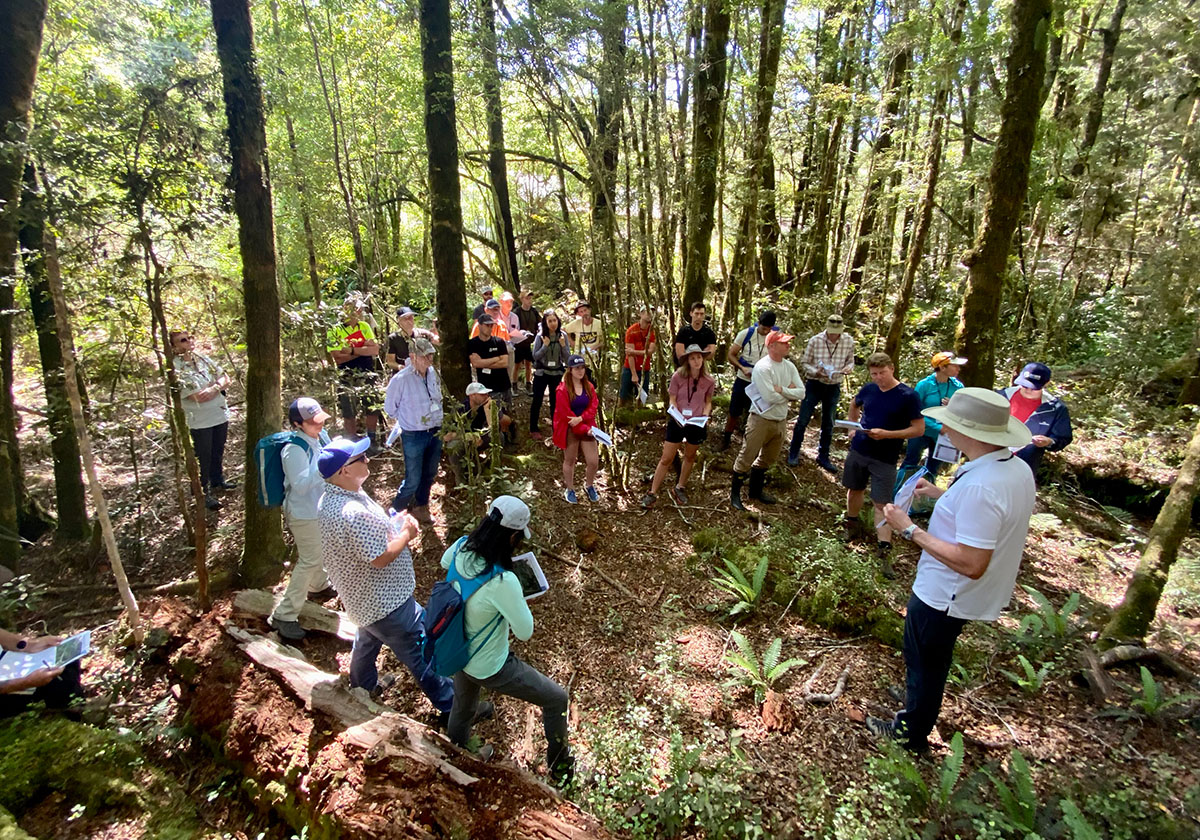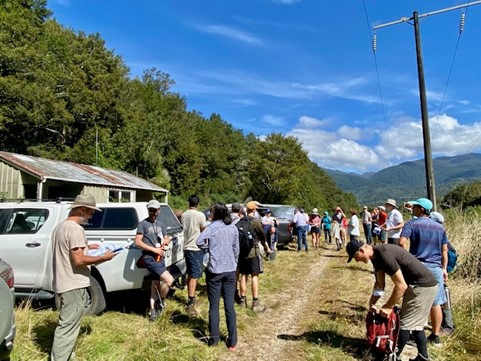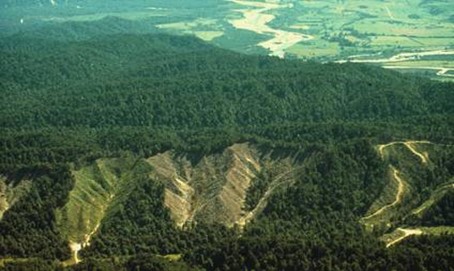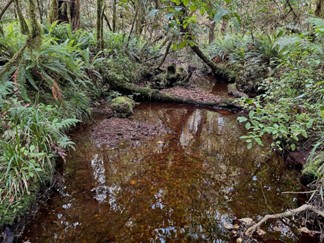
Maimai Field Day
The field day aims to stimulate new interest in research at Maimai—a set of small headwater catchments on the South Island of New Zealand.
The Maimai Field Day was held Feb 19-20, 2023 and hosted by Jeff McDonnell and the Global Institute for Water Security. The Field Day was co-organized with Dr. Uwe Morgenstern (New Zealand Institute for Geological and Nuclear Sciences). The goal of the event was to stimulate new interest in research at Maimai—a set of small headwater catchments on the South Island of New Zealand. Over the past 40 years, many investigators from NZ and internationally have added to our fundamental understanding of forest flows, hillslope geomorphology and streamflow generation processes.
The field day included 34 participants from various New Zealand research institutes including Manaaki Whenua Landcare Research, the National Institute for Water and Atmospheric Research, the Institute for Geological and Nuclear Sciences, Scion and the New Zealand Department of Conservation. Hydrologists from universities in New Zealand, Canada, the USA and Germany also attended.

The event began with an ice breaker reception at the Dawson Hotel in the town of Reefton on the evening of Feb 19. The main field day began at 9am on Feb 20 with self-introductions by the group and a 1-hr lecture by McDonnell to contextualize the Maimai site and its role in knowledge creation in catchment hydrology. The group then headed into the field until ~3pm with five field stops for discussion (as per first photo).

Topics included: early native forest research by the Forest Research Institute on canopy interception, forest harvesting experimental findings for water and sediment (linked to the second photo which shows the harvesting from the 1970s), early hillslope hydrology and geomorphology research revealing the importance of macropore flow, subsequent isotope tracing research that showed the importance of stored water and its link to channel stormflow and debris flow initiation. The group toured the extensive hillslope trench system in the M208 catchment and discussed topics related to the sequencing of different landscape units through storm events, scaling relations for water and water quality, catchment complexity and groundwater age.

Following the return to Reefton by most of the participants, a small sub-group of interested scientists joined Dr. Magali Nehemy (Trent University) at a steep slope section to tour a new forest water use, isotope tracing experiment that will continue through 2023. The group re-convened at 5:30pm at the Dawson Hotel in Reefton for a group dinner, that lasted well into the evening.
A good time was had by all and the next steps for Maimai are now under active discussion by various crown research institutes and the Department of Conservation. It is hoped that the site will receive Special Research Reserve status in the coming year so that research at the site by new generations of catchment scientists can continue.
